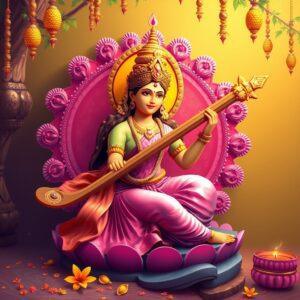
Hinduism, one of the world’s oldest religions, boasts a rich history and diverse practices. This guide delves into the core teachings, rituals, and philosophical schools of Hinduism, offering valuable insights for both newcomers and those seeking to deepen their understanding. Hinduism, as described in ancient scriptures, encompasses a vast collection of religious writings categorized as Shruti (heard) and Smriti (memorized). These Shastras, carrying eternal truths and divine revelations, were orally transmitted for generations, shaping the foundation of Hindu beliefs and practices. Hinduism is considered both pantheistic, equating God with the universe, and polytheistic, featuring a multitude of gods and goddesses. It doesn’t adhere to a single holy book but draws wisdom from numerous texts, most notably the Vedas.
Origins and Historical Context
Hinduism’s roots trace back to the ancient Indus Valley Civilization. The Vedic texts—Rigveda, Samaveda, Yajurveda, and Atharvaveda—form its foundational scriptures. Over centuries, Hinduism has evolved and adapted, demonstrating remarkable resilience and continuity.
Key Historical Figures and Influences:
- Adi Shankaracharya: A pivotal figure who significantly shaped Hindu philosophy, particularly Advaita Vedanta.
- Historical Evolution: Hinduism’s journey spans from ancient times to modern adaptations, reflecting its dynamic nature.
- Geographical Spread: Hinduism’s influence has extended across various cultures, demonstrating its adaptability and universal appeal.
It’s important to understand that Hinduism isn’t a monolithic religion but rather a collection of diverse practices and philosophies, unified by shared core beliefs.
Core Teachings of Hinduism
Fundamental Beliefs:
- Dharma: Represents duty, righteousness, and ethical conduct in everyday life. It guides individuals to live in accordance with cosmic order.
- Karma: The principle of action and consequence, where every action, thought, and word creates karmic impressions that influence future experiences. It underscores the importance of mindful actions and their long-term effects.
- Moksha: The ultimate goal of liberation from the cycle of birth and rebirth (samsara). It represents the attainment of spiritual enlightenment and freedom from suffering.
- Ahimsa: The principle of non-violence, a cornerstone of Hindu ethics, promoting compassion and respect for all living beings. It encourages peaceful coexistence and minimizing harm.
Key Scriptures:
- Sacred Texts of Hinduism: Explore the Bhagavad Gita, Upanishads, and Puranas, which provide profound insights into Hindu philosophy and spiritual practice.
Practices and Rituals
Daily Worship and Celebrations:
- Puja: Daily worship involving offerings, prayers, and meditation, fostering a connection with the divine. It can be performed at home or in temples.
- Festivals: Diwali, Holi, and Navratri are major Hindu festivals celebrated with joy, devotion, and traditional rituals. They represent significant cultural and spiritual events.
- Pilgrimage Sites: Varanasi, Rishikesh, and Tirupati are revered pilgrimage destinations for Hindus, offering opportunities for spiritual renewal and connection with sacred spaces.
Spiritual Practices:
- Yoga: Encompassing various forms like Hatha, Raja, and Bhakti, yoga integrates physical postures, breathing exercises, and meditation to promote physical and spiritual well-being. It is a path towards self-realization.
- Fasting: Practiced during festivals or specific days for spiritual discipline and purification. It cultivates self-control and enhances focus on spiritual practices.
Deities and Worship
Hindu Pantheon:
- Major Gods: The Trimurti—Brahma (the creator), Vishnu (the preserver), and Shiva (the destroyer)—represent the fundamental forces of the cosmos. They embody different aspects of divine energy.
- Goddesses: Lakshmi (goddess of wealth and prosperity), Saraswati (goddess of knowledge and wisdom), and Durga (goddess of power and protection) are revered for their divine attributes. They represent feminine power and grace.
- Avatars of Vishnu: Rama and Krishna are prominent avatars of Vishnu, revered for their exemplary lives and teachings. They embody divine virtues and guide humanity towards righteousness.
Worship Practices:
- Personal Deities and Household Shrines: Many Hindus maintain personal shrines at home for daily worship and connection with their chosen deities. This fosters a sense of sacredness in the home environment.
- Bhakti (Devotional Worship): Emphasizes love and devotion towards a chosen deity, expressed through prayers, hymns, and rituals. It cultivates a deep personal relationship with the divine. Learn more about Hindu Gods and Goddesses.
Philosophical Schools and Sects
Hinduism embraces a variety of philosophical schools, each offering unique perspectives and practices:
- Advaita Vedanta: This school teaches non-dualism, asserting the oneness of the individual soul (Atman) and the universal soul (Brahman). Adi Shankaracharya was a key proponent of this philosophy.
- Dvaita: This school proposes dualism, emphasizing the distinct nature of the individual soul and God. Madhva’s teachings highlight devotion to Vishnu.
- Vishishtadvaita: This school advocates qualified non-dualism, suggesting that the soul is part of God while retaining its individuality. Ramanuja championed this philosophy.
Explore Hindu Philosophy further.
Daily Life and Ethical Practices
Hinduism permeates daily life through ethical practices and rituals:
- Satyam (Truthfulness): Hinduism emphasizes honesty and integrity in all actions, promoting trust and ethical conduct. Truthfulness is considered a fundamental virtue.
- Asteya (Non-stealing): Respecting others’ property and rights is paramount, fostering a sense of fairness and justice in society. Non-stealing is a key ethical principle.
Hinduism’s rich tapestry offers guidance for a meaningful life, blending tradition with contemporary relevance. Explore Hinduism’s core beliefs and practices further.
How Poojn.in Supports Your Hindu Spiritual Journey
Poojn.in offers a wide selection of products to support your Hindu practices:
- Sacred Texts: Authentic Bhagavad Gitas and other scriptures. Deepen your understanding of Hindu philosophy with our curated collection of sacred texts. Explore our collection of Sacred Texts.
- Puja Items: Complete puja thalis, brass lamps, incense, and more. Enhance your daily puja rituals with our authentic and high-quality puja items. Shop our Puja Items now.
Visit Poojn.in to explore our complete collection.


